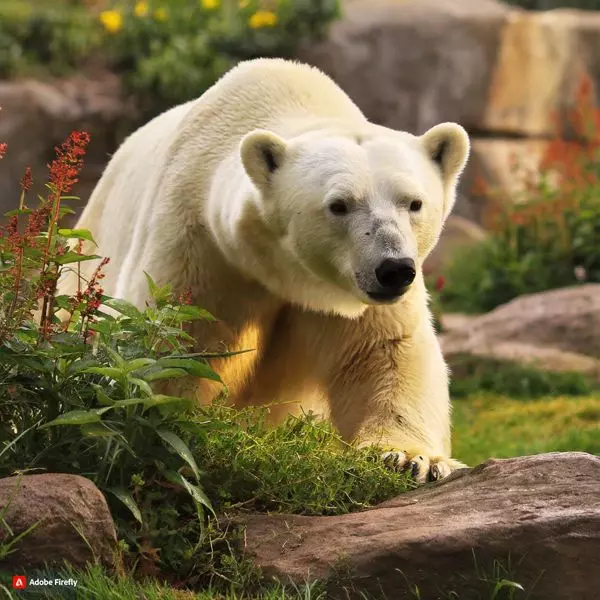Polar bear populations in Greenland have been on the decline for the past 20,000 years, as revealed by an international study analyzing genetic material, food choices, habitat, and historical climate data. The research, led by Michael Westbury, an assistant professor at the University of Copenhagen, Denmark, highlights the impact of rising sea temperatures on the reduction of polar bear numbers.
According to Westbury, the decrease in sea ice, driven by increasing sea temperatures, results in fewer seals—the primary food source for polar bears.The study, published in the journal Science Advances, emphasizes that even small environmental changes have a significant impact on polar bear populations.
“A relatively small increase in water temperature and a small reduction in the amount of sea ice result in a quite dramatic decline in the polar bear population. The relationship is not linear,” explained Westbury.
The research team discovered that the temperature of the sea around Greenland has risen by 0.2 to 0.5 degrees Celsius over the last 20,000 years, leading to a 20 to 40 percent reduction in the polar bear population. This temperature increase is attributed to the ongoing global warming, particularly evident in Greenland and the Arctic region.
“The current development is unprecedented compared to what the polar bear has experienced over the last 20,000 years. And, with the drastic projections, we can expect that the species will not thrive at all,” warned Westbury.
Eline Lorenzen, a professor at the University of Copenhagen and a participant in the study, expressed concern about future sea temperature increases. “Looking ahead, we are potentially facing a 2 to 5 degrees Celsius increase in sea temperatures around Greenland. So, it is a tenfold increase in temperature changes compared to the last 20,000 years. It doesn’t look good for the polar bear,” said Lorenzen.
Highlighting the broader implications for Arctic ecosystems, Lorenzen stated, “As the top of the food chain, the polar bear represents ecosystem changes more generally, showing that marine ecosystems in the Arctic are under pressure.”
The study suggests that polar bears could adapt to climate changes by making dietary adjustments. Westbury noted, “Our analyses of polar bear dietary choices show that they are plastic, meaning they can seek different food than usual. We can see this in the polar bears in East Greenland.”
In East Greenland, male and female polar bears differentiate their dietary choices, with males consuming various seal species and females focusing on ringed seals—a behavioral adaptation to cope with resource scarcity.
As concerns about the future of polar bears intensify, the study underscores the need for urgent measures to address climate change and its profound impact on Arctic wildlife.
Also Read: Uttarakhand Civil Code Draft To Be Tabled Soon By State Govt












